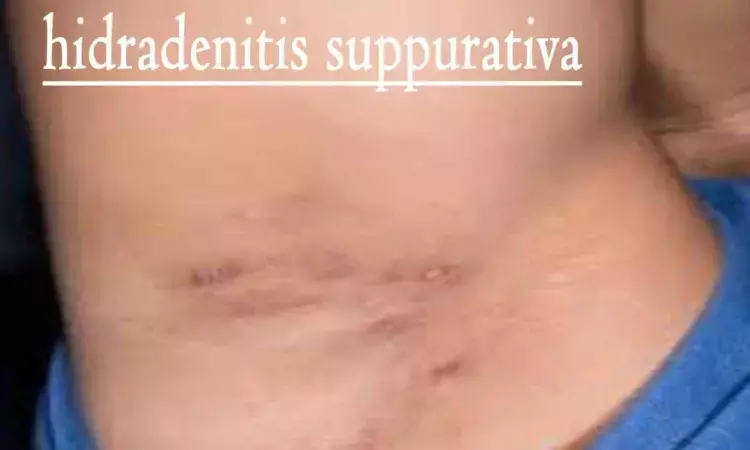- Home
- Medical news & Guidelines
- Anesthesiology
- Cardiology and CTVS
- Critical Care
- Dentistry
- Dermatology
- Diabetes and Endocrinology
- ENT
- Gastroenterology
- Medicine
- Nephrology
- Neurology
- Obstretics-Gynaecology
- Oncology
- Ophthalmology
- Orthopaedics
- Pediatrics-Neonatology
- Psychiatry
- Pulmonology
- Radiology
- Surgery
- Urology
- Laboratory Medicine
- Diet
- Nursing
- Paramedical
- Physiotherapy
- Health news
- Fact Check
- Bone Health Fact Check
- Brain Health Fact Check
- Cancer Related Fact Check
- Child Care Fact Check
- Dental and oral health fact check
- Diabetes and metabolic health fact check
- Diet and Nutrition Fact Check
- Eye and ENT Care Fact Check
- Fitness fact check
- Gut health fact check
- Heart health fact check
- Kidney health fact check
- Medical education fact check
- Men's health fact check
- Respiratory fact check
- Skin and hair care fact check
- Vaccine and Immunization fact check
- Women's health fact check
- AYUSH
- State News
- Andaman and Nicobar Islands
- Andhra Pradesh
- Arunachal Pradesh
- Assam
- Bihar
- Chandigarh
- Chattisgarh
- Dadra and Nagar Haveli
- Daman and Diu
- Delhi
- Goa
- Gujarat
- Haryana
- Himachal Pradesh
- Jammu & Kashmir
- Jharkhand
- Karnataka
- Kerala
- Ladakh
- Lakshadweep
- Madhya Pradesh
- Maharashtra
- Manipur
- Meghalaya
- Mizoram
- Nagaland
- Odisha
- Puducherry
- Punjab
- Rajasthan
- Sikkim
- Tamil Nadu
- Telangana
- Tripura
- Uttar Pradesh
- Uttrakhand
- West Bengal
- Medical Education
- Industry
Bariatric surgery significantly lowers risk of severe hidradenitis suppurativa in obese individuals

France: Patients with obesity who undergo bariatric surgery may be at lower risk of developing hidradenitis suppurativa (HS) requiring hospitalization, a French study has revealed. Surgery was also linked to lower risk in those with the disease, but the reduction was insignificant.
"In obese people who underwent bariatric surgery, the risk of developing severe disease requiring hospitalization was 26% lower," the researchers reported in the Journal of the European Academy of Dermatology and Venereology.
Hidradenitis suppurativa is a chronic inflammatory condition that affects the follicular epithelium of skin folds, characterized by recurrent painful abscesses and nodules, impairing the patient's quality of life. HS patients frequently exhibit metabolic syndrome (MS), with obesity being identified as a risk factor; almost 20% of obese patients experience HS versus 1% in the general population. However, not many studies have evaluated the impact of weight loss on HS, especially with bariatric surgery, and results are discordant.
Andrea Chierici and colleagues from France aimed to investigate the effects of bariatric surgery on severe suppurative hidradenitis. For this purpose, they used nationwide administrative data in France to conduct a 10-year matched case-control study in patients with a body mass index (BMI) of 30 kg/m2 or greater.
A first analysis was performed among patients without hidradenitis suppurativa, comparing hospitalization risk for severe disease between 297,776 who underwent bariatric surgery and 2,735,930 who did not. A second analysis was performed among patients with hidradenitis suppurativa, comparing hospitalization risk of severe disease between 310 who underwent bariatric surgery and 3875 who did not.
The study led to the following findings:
· Among the patients without hidradenitis suppurativa, 0.08% of those who underwent bariatric surgery had a subsequent hospitalisation for severe hidradenitis suppurativa, compared with 0.11% of those who did not have this surgery. The difference corresponded to a significant 26% reduction in risk with surgery.
· Among the patients who had hidradenitis suppurativa, the hospitalisation rate for severe disease was 3.5 per 100 patient-years in the group who had bariatric surgery, compared with 5.4 per 100 patient-years in the group who did not have this surgery. The difference corresponded to a nonsignificant 32% reduction in risk with surgery.
Findings may have been impacted by confounding and have uncertain generalisability to other populations.
"With its well-known effects in reducing adipose tissue and insulin resistance with its associated inflammation triggering, and with dietary changes tied to metabolic surgery, patients undergoing weight loss surgery should have an inferior risk to develop de novo or recurrent HS," the researchers wrote.
"There is a need for prospective case-control studies focusing on vitamins, weight loss and micronutrient deficiencies, and mild hidradenitis suppurativa forms incidence, not requiring hospital admission to confirm the protective effect of bariatric surgery," they concluded.
Reference:
Chierici, A., Bulsei, J., Fatico, S. D., Alromayan, M., Alamri, A., Pavone, G., Liddo, G., Fontas, E., & Iannelli, A. Effects of bariatric surgery on severe suppurative hidradenitis: Results of a nationwide administrative data study in France. Journal of the European Academy of Dermatology and Venereology. https://doi.org/10.1111/jdv.19649
Dr Kamal Kant Kohli-MBBS, DTCD- a chest specialist with more than 30 years of practice and a flair for writing clinical articles, Dr Kamal Kant Kohli joined Medical Dialogues as a Chief Editor of Medical News. Besides writing articles, as an editor, he proofreads and verifies all the medical content published on Medical Dialogues including those coming from journals, studies,medical conferences,guidelines etc. Email: drkohli@medicaldialogues.in. Contact no. 011-43720751


